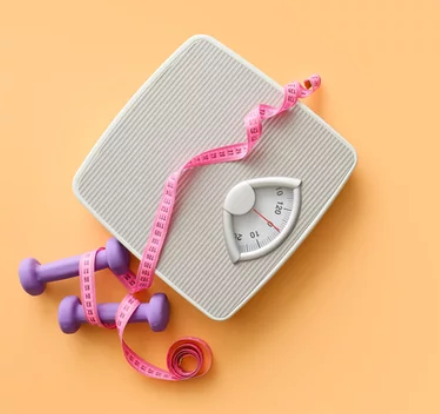Setting weight loss goals often involves tracking your progress using clear and consistent metrics. While pounds (lbs) are commonly used in the United States, kilograms (kg) are the standard in most other parts of the world. Understanding how to convert between these units can help you stay on track, especially when interacting with global resources, fitness apps, or international health professionals.
In this article, we’ll explore why converting between lbs and kg is essential for weight loss goals, how to do it accurately, and tips to stay motivated during your journey.
Check out our Pounds Converter (lb)
Why Convert Pounds to Kilograms for Weight Loss?
1. Standardization Across Systems
In international fitness and medical contexts, kilograms are the preferred unit of measurement. If you’re using a fitness tracker, diet plan, or consulting a health professional outside the U.S., you’ll often encounter weight expressed in kilograms. Converting your weight into kilograms ensures consistency when comparing progress or following global guidelines.
2. Accuracy in Goal Setting
Some fitness apps and tools default to kilograms, especially those developed outside the U.S. Converting your weight helps align your data with these tools, ensuring accurate tracking of progress and calorie recommendations.
3. Cross-Cultural Collaboration
Working with an international personal trainer, nutritionist, or online fitness community might require using kilograms. Being familiar with both systems makes communication seamless and efficient.
How to Convert Pounds to Kilograms for Weight Loss Goals
The conversion between pounds and kilograms is straightforward:
1 lb = 0.453592 kg
To Convert:
- From Pounds to Kilograms: Multiply your weight in pounds by 0.453592.
- From Kilograms to Pounds: Multiply your weight in kilograms by 2.20462.
Examples
- Starting Weight: If you weigh 180 lbs, your weight in kilograms is:
180 × 0.453592 = 81.65 kg - Goal Weight: If your target is to weigh 70 kg, the equivalent in pounds is:
70 × 2.20462 = 154.32 lbs
Common Mistakes When Converting lb to kg
1. Forgetting the Decimal Point
Using an incorrect conversion factor, such as 0.45 instead of 0.453592, can lead to slight inaccuracies over time. Always use the full factor for precision.
2. Confusing Pounds with Kilograms
Mixing up units can lead to unrealistic goals. For example, setting a target weight of 60 lbs instead of 60 kg would be dangerously low. Double-check the unit of measurement.
3. Relying on Memory Instead of Tools
Mental math can lead to errors, especially for precise tracking. Use reliable tools like calculators or apps to ensure accuracy.
Practical Tips for Weight Loss Tracking
1. Use a Dual-Unit Scale
Invest in a scale that displays both pounds and kilograms. This makes it easier to track progress in either unit without constant conversions.
2. Leverage Fitness Apps
Most fitness apps allow you to switch between lbs and kg in their settings. Choose the unit you’re most comfortable with, or use kilograms if you’re syncing data with international guidelines.
3. Keep a Conversion Chart Handy
Print out or save a conversion chart for quick reference. Here’s a simple chart for common weights:
| Pounds (lbs) | Kilograms (kg) |
|---|---|
| 100 | 45.36 |
| 150 | 68.04 |
| 200 | 90.72 |
| 250 | 113.40 |
4. Set Small, Achievable Goals
Breaking down your weight loss target into smaller increments, such as 5 kg or 10 lbs, makes the journey feel more manageable and rewarding.
Real-World Applications of Converting lb to kg for Weight Loss
1. Meal Planning
If you follow international recipes or nutrition guidelines, portion sizes may be provided in kilograms. Knowing your weight in kilograms helps you calculate calorie needs and adjust portion sizes accurately.
2. Exercise Equipment
Gym equipment, such as dumbbells or barbells, is often labeled in kilograms. Understanding the conversion ensures you’re lifting the correct amount of weight.
3. Medical Checkups
Doctors and health professionals may use kilograms to record your weight. Knowing your weight in both units can make discussions about weight loss targets more straightforward.
4. Travel and Fitness
Traveling internationally might expose you to different units of measurement for weight, such as in hotel gym scales or when discussing fitness goals abroad. Being familiar with both systems eliminates confusion.
Staying Motivated on Your Weight Loss Journey
1. Focus on Progress, Not Perfection
Weight can fluctuate daily due to water retention, hormonal changes, or digestion. Celebrate small milestones, whether they’re in pounds or kilograms, and focus on long-term trends.
2. Incorporate Non-Scale Victories
Measure progress through other metrics, such as improved stamina, better-fitting clothes, or reduced body fat percentage.
3. Use Visual Aids
Track your progress with a graph that plots your weight over time in pounds or kilograms. Seeing your achievements visually can boost motivation.
4. Join Supportive Communities
Connect with online or local groups that share weight loss tips and encouragement. Whether they use pounds or kilograms, shared experiences can inspire you to stay committed.
Try out our Free Math and English Worksheet Generators
Switching Between Units for Motivation
Sometimes, switching the unit of measurement can provide a fresh perspective. For example:
- Small Goals in Kilograms: Losing 1 kg might feel more achievable than 2.2 lbs.
- Big Wins in Pounds: Seeing a drop of 10 lbs instead of 4.54 kg might feel more rewarding.
Choose the system that motivates you the most while staying consistent in your tracking.
Converting pounds to kilograms (and vice versa) is a practical skill that enhances your weight loss journey, especially in a globalized world. Whether you’re using international fitness apps, following a nutrition plan, or consulting health professionals, understanding both units empowers you to set realistic goals and track progress accurately.
